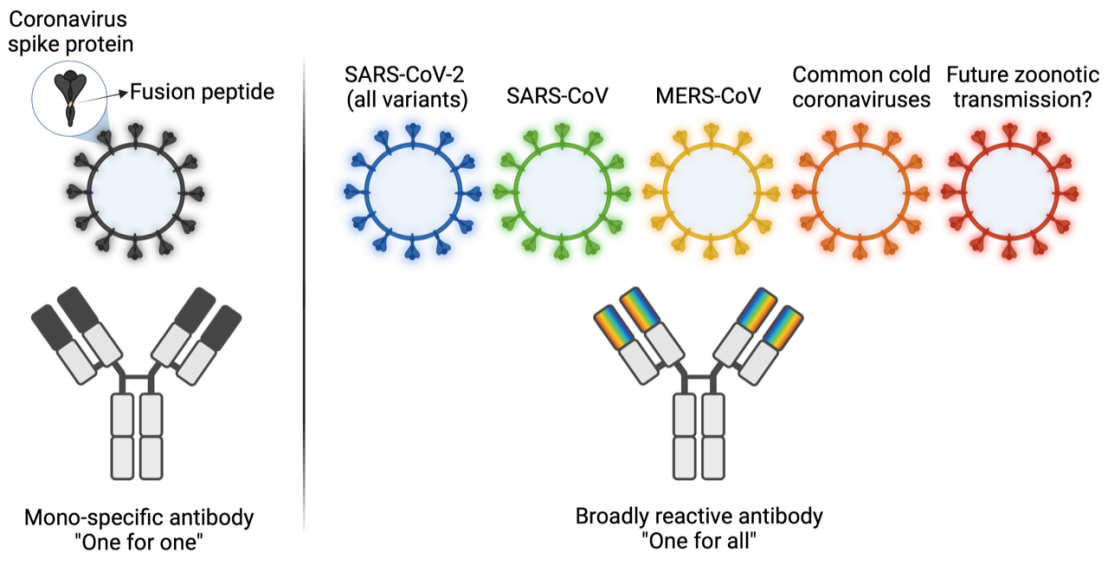One for all? A class of antibodies that targets all coronaviruses.
Recently published in “Science”, a study led by the Sallusto Laboratory (ETH Zurich and IRB-USI, Bellinzona) and the Veesler Laboratory (University of Washington, Seattle) describes a new class of antibodies that bind to and neutralize most human and animal coronaviruses, including all SARS-CoV-2 variants. These antibodies reveal a new target for the design of universal coronavirus vaccines.

Coronaviruses have been circulating within the human population for decades and seasonally cause common colds. However, multiple recent zoonotic transmission from animals have led to the introduction of highly pathogenic SARS-CoV, MERS-CoV and SARS-CoV-2 that have caused epidemics and the current pandemic. In view of the global impact of the current pandemic and the likely occurrence of new zoonotic transmission, there is an urgent need to develop a “universal” vaccination strategy that can offer broad protection against all coronaviruses.
One important component in immunity is antibodies, “Y”-shaped proteins that are produced by B cells of our immune system following infection or vaccination. Antibodies can bind to viruses preventing infection of host cells but are usually highly specific for a given species of virus. In this study, the team searched for a rare class of antibodies that would recognize and neutralize all coronavirus species.
Using an innovative and sensitive methodology, the team isolated a new class of antibodies from infected and vaccinated individuals that binds to and neutralizes most human and animal coronaviruses, including all SARS-CoV-2 variants. These antibodies bind to a region of the coronavirus spike protein called the fusion peptide, which is essential for viral entry into the host cell and is highly conserved among different coronaviruses. Using structural and functional approaches, the team found that the fusion peptide is kept ‘hidden’ in the spike protein and becomes exposed only when the virus spike protein binds to the receptor on the host cell.
This discovery of the fusion peptide as a target for broadly neutralizing antibodies paves the way for the design next generation vaccines capable of inducing such broadly protective antibodies.
Link to the paper in external page "Science"